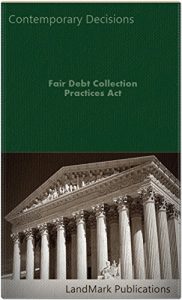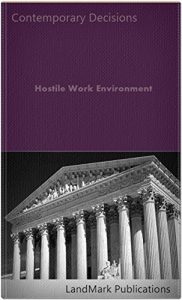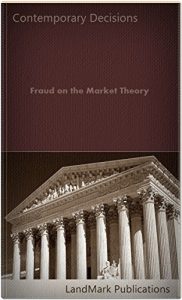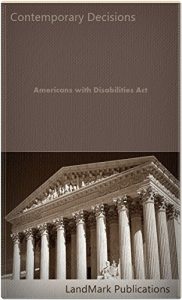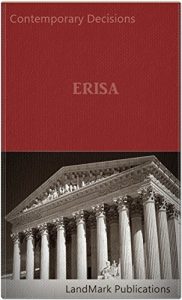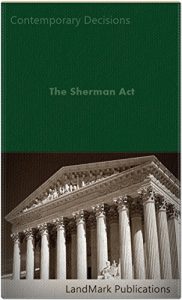THIS CASEBOOK contains a selection of 155 U. S. Court of Appeals decisions that analyze, discuss and apply provisions of the Fair Debt Collection Practices Act. The selection of decisions spans from 2007 to the date of publication.
FDCPA generally bars the use of "false, deceptive, or misleading representation or means in connection with the collection of any debt." 15 U.S.C. § 1692e. Section 1692e sets forth a non-exhaustive list of sixteen practices specifically prohibited, including a catch-all provision that bars "[t]he use of any false representation or deceptive means to collect or attempt to collect any debt or to obtain information concerning a consumer." 15 U.S.C. § 1692e(10). A single violation of § 1692e is sufficient to hold a debt collector liable pursuant to FDCPA. See 15 U.S.C. § 1692k (establishing civil liability for "any debt collector who fails to comply with any provision of this subchapter"). Altman v. JC Christensen & Associates, Inc., 786 F. 3d 191 (2nd Cir. 2015).
The FDCPA was enacted in the context of existing Federal Trade Commission (FTC) regulation of unfair and deceptive debt-collection practices. Jeter v. Credit Bureau, Inc., 760 F.2d 1168, 1172-75 (11th Cir. 1985). Despite existing regulation, Congress found "abundant evidence of abusive, deceptive, and unfair debt collection practices by many debt collectors." 15 U.S.C. § 1692(a). "Existing laws and procedures for redressing these injuries [were] inadequate to protect consumers." Id. § 1692(b). Bishop v. Ross Earle & Bonan, PA, (11th Cir. 2016).
Congress set out to correct these problems by supplementing and expanding upon existing debt-collection regulations. Jeter, 760 F.2d at 1174. The declared purpose of the FDCPA is "to eliminate abusive debt collection practices by debt collectors, to insure that those debt collectors who refrain from using abusive debt collection practices are not competitively disadvantaged, and to promote consistent State action to protect consumers against debt collection abuses." 15 U.S.C. § 1692(e). To advance these goals, the FDCPA codified several specific consumer-protective rights. Most significantly, the FDCPA gave consumers a private right of action to enforce its provisions against debt collectors. Id. Bishop v. Ross Earle & Bonan, PA, ibid.
FDCPA generally bars the use of "false, deceptive, or misleading representation or means in connection with the collection of any debt." 15 U.S.C. § 1692e. Section 1692e sets forth a non-exhaustive list of sixteen practices specifically prohibited, including a catch-all provision that bars "[t]he use of any false representation or deceptive means to collect or attempt to collect any debt or to obtain information concerning a consumer." 15 U.S.C. § 1692e(10). A single violation of § 1692e is sufficient to hold a debt collector liable pursuant to FDCPA. See 15 U.S.C. § 1692k (establishing civil liability for "any debt collector who fails to comply with any provision of this subchapter"). Altman v. JC Christensen & Associates, Inc., 786 F. 3d 191 (2nd Cir. 2015).
The FDCPA was enacted in the context of existing Federal Trade Commission (FTC) regulation of unfair and deceptive debt-collection practices. Jeter v. Credit Bureau, Inc., 760 F.2d 1168, 1172-75 (11th Cir. 1985). Despite existing regulation, Congress found "abundant evidence of abusive, deceptive, and unfair debt collection practices by many debt collectors." 15 U.S.C. § 1692(a). "Existing laws and procedures for redressing these injuries [were] inadequate to protect consumers." Id. § 1692(b). Bishop v. Ross Earle & Bonan, PA, (11th Cir. 2016).
Congress set out to correct these problems by supplementing and expanding upon existing debt-collection regulations. Jeter, 760 F.2d at 1174. The declared purpose of the FDCPA is "to eliminate abusive debt collection practices by debt collectors, to insure that those debt collectors who refrain from using abusive debt collection practices are not competitively disadvantaged, and to promote consistent State action to protect consumers against debt collection abuses." 15 U.S.C. § 1692(e). To advance these goals, the FDCPA codified several specific consumer-protective rights. Most significantly, the FDCPA gave consumers a private right of action to enforce its provisions against debt collectors. Id. Bishop v. Ross Earle & Bonan, PA, ibid.
